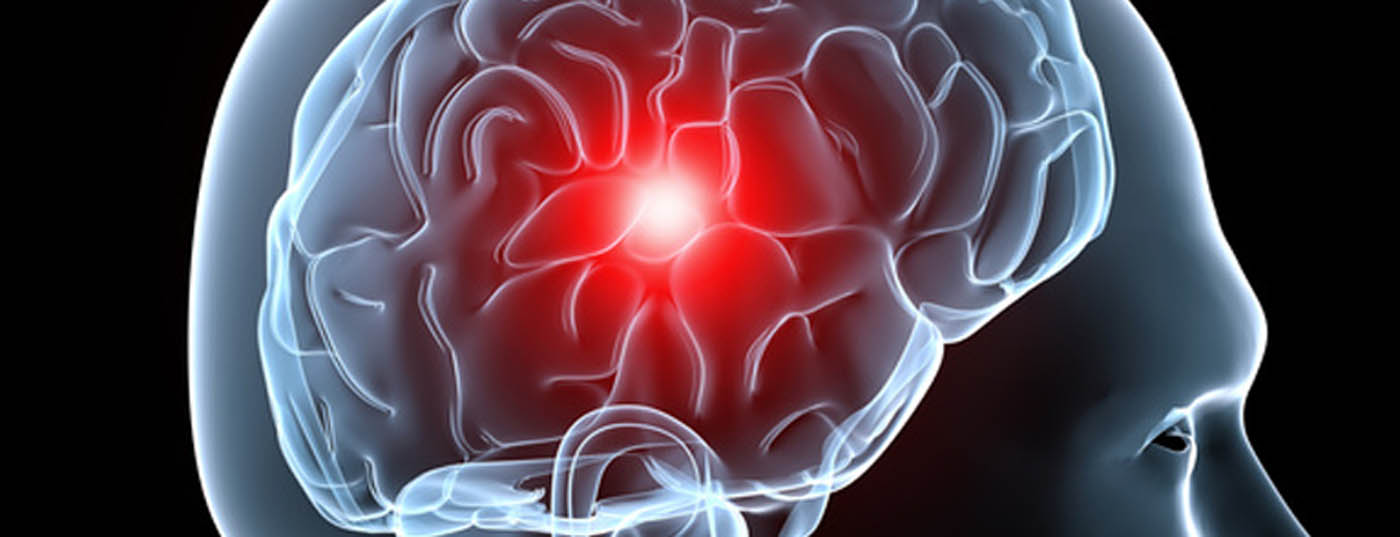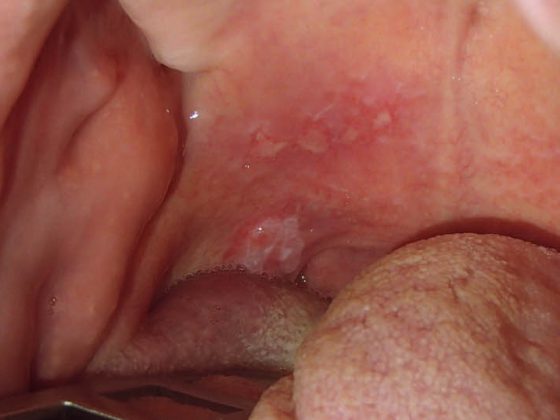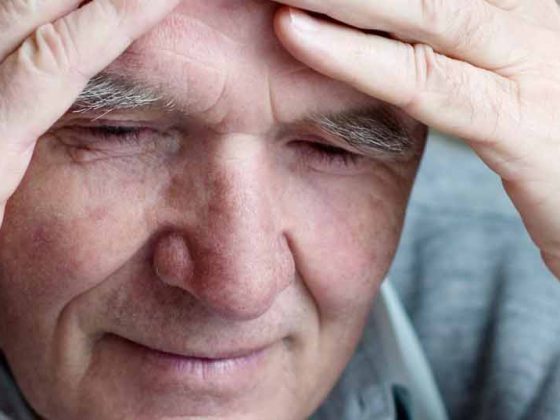Two experts from different fields spoke on the topic of “cerebral stroke” at the 19th Zurich Cardiovascular Day. From a neurological perspective, cerebral microbleeds have been identified as a risk factor in recent years. Here, blood pressure treatment seems to be the central therapeutic approach. Cardiologically, atrial fibrillation remains the greatest danger. The new oral anticoagulants are now the standard of care.
(ag) Prof. Dr. med. Andreas Luft, Department of Neurology at the University Hospital Zurich, spoke about the neurological perspective of stroke: “The most effective strategy of prevention is the treatment of atrial fibrillation, carotid stenosis, diabetes and smoking. Neurologically, so-called cerebral microbleeds play a role. These seem to influence the mortality of stroke patients quite dramatically, mainly due to ischemia [1].” There are two different types of microbleeds: Deep hemispheric forms focus on ischemia as a risk, while isolated lobar forms (amyloid angiopathy) focus on hemorrhage [2]. The first type is slightly more common (15 vs. 8%) and more dependent on blood pressure, the second more dependent on age (seems to promote dementia [3]).
Therapy options
The most important therapeutic approach is blood pressure treatment. With regard to anticoagulation, caution is advised: The SPS 3 trial [4] had shown for microvascular (lacunar) insults that the addition of clopidogrel to aspirin in the prevention of new strokes brings no benefit but increased harm (bleeding and death). Therefore, a combination is not indicated; aspirin or clopidogrel alone is. What brought a significant positive effect (p=0.03) at least on the rate of recurrent intracerebral hemorrhage was tighter systolic blood pressure control (<130 mmHg) [5].
In addition, lifestyle modifications such as physical activity play a very crucial role after stroke has occurred, whether for walking ability, fitness, mental activity, or even quality of life and cardiovascular health [6,7].
Screening is crucial
PD Dr. med. Jan Steffel, Cardiology University Hospital Zurich, gave an insight into the cardiological basis of cerebral stroke. He considers screening for atrial fibrillation (VHF) to be very crucial; after all, stroke is one of the main complications of VHF. Nearly one in four people over the age of 55 will develop an VCF at some point in their lives. This increases the risk of stroke by a factor of five and is responsible for almost one-third of all strokes (although these are then usually more severe than those from other causes). Opportunistic screening for VCF in patients ≥65 years of age is therefore a class 1 recommendation and strongly indicated.
The CRYSTAL-AF study [8] has demonstrated that very impressive results in VHF detection can be achieved with a rapidly implantable loop recorder and home monitoring: In patients after cryptogenic stroke, the diagnosis of VCF could be made significantly more frequently with the new method than with conventional follow-up. The ECG is too inaccurate compared to the loop recorder. Thus, in secondary prevention, close monitoring for VHF is central.
What medications help?
The risk of thromboembolism in VHF should be determined with the CHA2DS2-VASc score (class IA recommendation). The new oral anticoagulants (NOAKs) may be considered standard therapy for VHF. A review of the studies (RE-LY [9], ROCKET-AF [10], ARISTOTLE [11], ENGAGE-AF [12]) shows that NOAKs are overall superior to vitamin K antagonists (VKA). This is also in line with the recommendations in the ESC guidelines (2012): Where oral anticoagulation is indicated (risk stratification by CHA2DS2-VASc score), NOAKs-either a direct thrombin inhibitor (dabigatran) or a direct factor Xa inhibitor (rivaroxaban, apixaban)-should be preferred over dose-adjusted VKA in most patients with nonvalvular VCF.
“Aspirin is off the table for VHF,” Dr. Steffel said. The study by Connolly et al. [13] compared apixaban with aspirin in VHF patients in whom VKA therapy was not an option. Due to the poor results, the study had to be stopped early: Stroke or systemic embolism occurred in about twice as many cases under aspirin as under apixaban (primary endpoint, HR under apixaban 0.45; 95%CI 0.32-0.62, p<0.001).
CAVE: Special Situations and Off-Label Use
Long-term data on NOAKs reinforce the positive study results obtained to date. “Of course, however, the event rate is not zero even among these agents,” the speaker noted. Special care must also be taken in situations where there is a risk of interactions or in severe renal insufficiency (is a contraindication). However, according to the speaker, it is questionable whether there are any alternatives at all, since the data situation with VKA is also poor (and they are also formally contraindicated).
Off-label use of NOAKs is, of course, always delicate and should be avoided, e.g., in valvular VCF (mitral stenosis, mechanical valves) and in special subgroups (pregnant women, HIV-infected persons, etc.).
Source: 19th Zurich Cardiovascular Day, December 4, 2014, Zurich
Literature:
- Song TJ, et al: Association of cerebral microbleeds with mortality in stroke patients having atrial fibrillation. Neurology 2014 Oct 7; 83(15): 1308-1315.
- Greenberg SM, et al: Cerebral Microbleeds: A Field Guide to their Detection and Interpretation. Lancet Neurol Feb 2009; 8(2): 165-174.
- Miwa K, et al: Multiple or mixed cerebral microbleeds and dementia in patients with vascular risk factors. Neurology 2014 Aug 12; 83(7): 646-653.
- SPS3 Investigators: Effects of clopidogrel added to aspirin in patients with recent lacunar stroke. N Engl J Med 2012 Aug 30; 367(9): 817-825.
- SPS3 Study Group: Blood-pressure targets in patients with recent lacunar stroke: the SPS3 randomised trial. Lancet 2013 Aug 10; 382(9891): 507-515.
- Luft AR, et al: Treadmill exercise activates subcortical neural networks and improves walking after stroke: a randomized controlled trial. Stroke 2008 Dec; 39(12): 3341-3350.
- Kirk H, et al: The cardiac model of rehabilitation for reducing cardiovascular risk factors post transient ischaemic attack and stroke: a randomized controlled trial. Clin Rehab 2014 Apr; 28(4): 339-349.
- Sanna T, et al: Cryptogenic stroke and underlying atrial fibrillation. N Engl J Med 2014; 370: 2478-2486.
- Connolly SJ, et al: Dabigatran versus warfarin in patients with atrial fibrillation. N Engl J Med 2009 Sep 17; 361(12): 1139-1151.
- Patel MR, et al: Rivaroxaban versus warfarin in nonvalvular atrial fibrillation. N Engl J Med 2011 Sep 8; 365(10): 883-891.
- Granger CB, et al: Apixaban versus warfarin in patients with atrial fibrillation. N Engl J Med 2011 Sep 15; 365(11): 981-992.
- Giugliano RP, et al: Edoxaban versus warfarin in patients with atrial fibrillation. N Engl J Med 2013 Nov 28; 369(22): 2093-2104.
- Connolly SJ, et al: Apixaban in Patients with Atrial Fibrillation. N Engl J Med 2011; 364: 806-881.
HAUSARZT PRAXIS 2015; 10(1): 47-48











